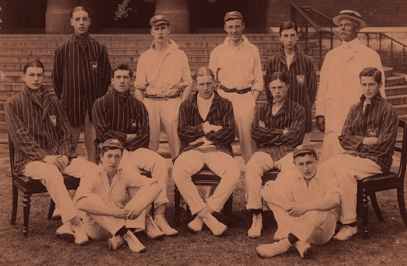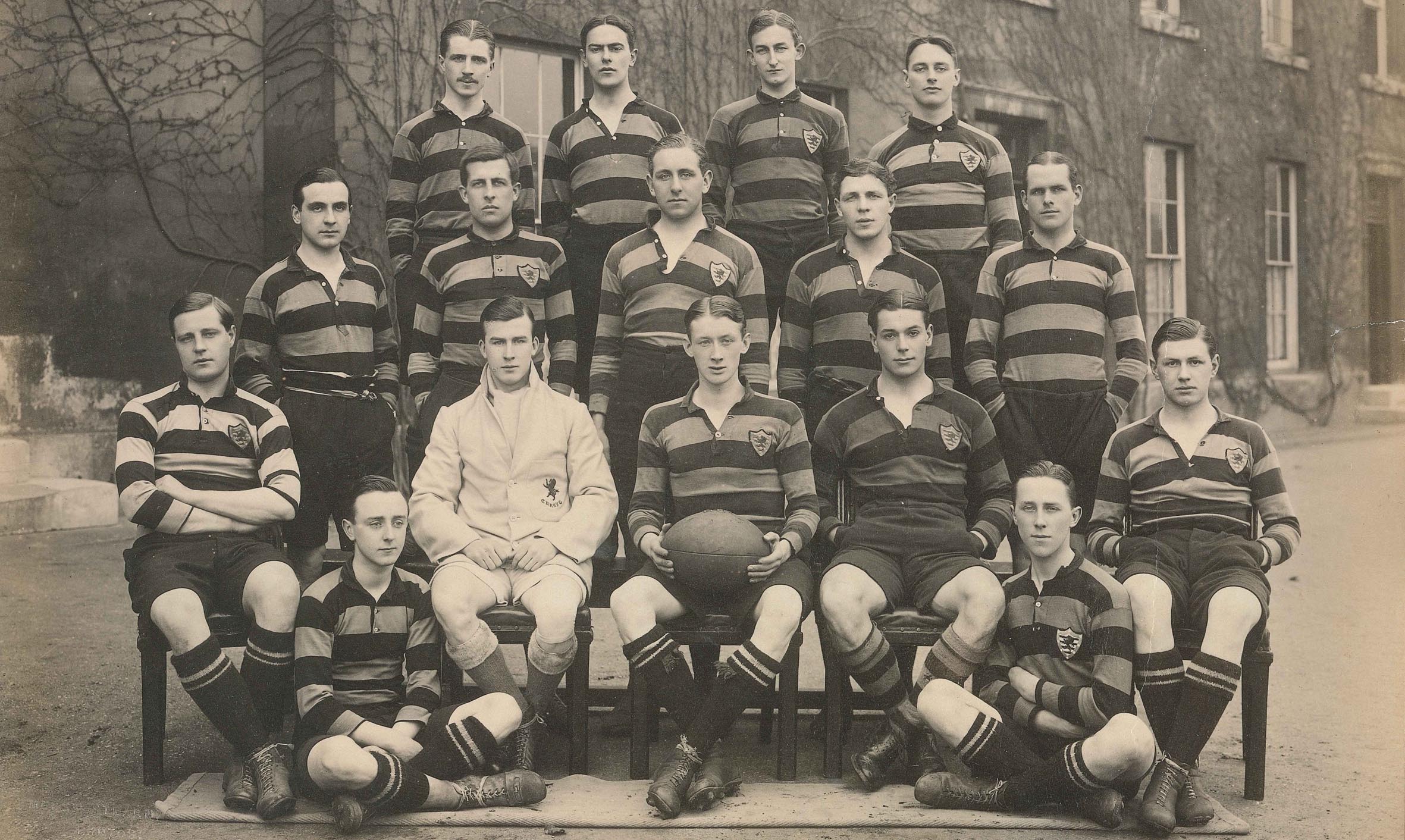John George Will (1892-1917)
First World War Roll of Honour
The cheery alertness which was so characteristic of him in the football field was part of his very nature… So much alive was he that it is difficult for us to believe he is now for ever still and silent.
Obituary, The London Hospital Gazette, Oct 1917
John George Will was born on 2 September 1892 in Mitcham, Surrey, to Ella and Dr. John Kennedy Will, the Medical Superintendent of the Bethnal House Asylum. He was educated at Merchant Taylors’ School. where he played (as a Wing) for Old Merchant Taylors' Football Club. ‘Jock’, as he was known at school, played in the Cricket 1st XI and was an all-round athlete, a good 400 metre runner (holding the school record for the quarter mile), long jumper and hurdler. While at school he won the Public Schools’ Athletic Championship.

He came up to Downing in 1911 as an Exhibitioner to study medicine. He played in the Freshmen’s Rugby Match and represented Cambridge against Oxford in 1911, 1912 and 1913. He was elected Captain for 1914-15. He represented the College on several occasions, and assisted in winning the Inter-Collegiate Relay Race for three years in succession. He also secured College Colours for Cricket and was Vice-President of the Griffins’ Club. Will attended practical vacation classes at the Royal London Hospital and intended to continue his medical education in London after the war.

Outside Downing, Will obtained fame as a rugby International, playing as a ‘dashing left-wing three quarter’ for Scotland winning seven caps against England, Ireland and Wales in 1912 and 1914 and also against France in 1912. He played in the last international match before the war, the Calcutta Cup match on 21 March 1914 at Inverleith (Edinburgh). He was one of six from that team who did not survive the Great War, and one of 31 Scottish internationals who died in the War.
When war was declared Will joined the Honourable Artillery Company (H.A.C.) as a private in August 1914 and was sent to France the following month. He received his commission on 25 February 1915 with the Worcester Regiment, but transferred to the 2nd Royal Leinster Regiment in April 1915. He was wounded and nearly lost his life as a result of being shot through the neck, near Hooge, Ypres in June 1915. The College magazine, The Griffin, reported in Michaelmas 1915, that “2nd Lieut. J. G. Will, who was wounded on June 18th, made a successful recovery. He is now attached to the Royal Flying Corps, and has gone out to Egypt.”
Will served as a Flying Officer (Observer) with the Royal Flying Corps and was posted to Egypt in November 1915, but was wounded again in the same month. He returned in Spring 1916 and took his pilot’s certificate in June 1916. In August 1916 he became a flying instructor at Dover Flying School and was promoted to Lieutenant. Will returned to France in February 1917 with 29th Squadron.
On the morning of 25 March 1917, Will took off from Le Hameau (a British aerodrome, East of Arras, Belgium) in a Nieuport 17 (a single-seat ‘fighting-scouts’ aircraft, developed to counter the superior German Albatross scout planes). He was reported missing that same day. Later, The Griffin reported that Will had been officially reported killed in action over Arras, quoting an account of the action in which it is believed he lost his life (aged only 24) from the Illustrated Sporting and Dramatic News:
Will was up with one other plane on escort duty when the two were attacked by twelve Albatross scouts. Both went at once straight for the Bosches, and actually kept them off while the six planes they were escorting did their job and returned. His own duty over, Will was some way above the other escorting plane and was hard pressed…. in the other plane climbed to help him, but his gun jambed, so he nose dived, straightening out when about 50 feet up, in an attempt to draw the enemy off Will. Climbing again, he saw a plane come down, but is uncertain which it was, and on that uncertainty, Will’s fate depends. If it was not Will’s machine that fell Will may have been forced to land within enemy lines. It is said that Will would have won honours had he returned for the magnificent way he flew and fought against overwhelming odds.
The Griffin, Easter Term 1917

Lieutenant John George Will (along with many other R.F.C. pilots who lost their lives on 25 March 1917 and thereafter) is commemorated by The Arras Flying Services Memorial, a Commonwealth War Graves Commission war memorial in the Faubourg d'Amiens Cemetery, Arras, France. He is also remembered on a dedicatory tablet at Merchant Taylors’ School War Memorial Sports Ground Clubhouse, and on a memorial inside the vestibule of St John on Bethnal Green, London.
Images:
Will (Light Blues jacket) in the Downing Rugby XV, 1913. Downing College Archive
Merchant Taylor’s School 1st Cricket XI (2nd from left, back row), Courtesy of Merchant Taylors’ School, Northwood.
Lt Will, from Scissorum, 81, 2014, Courtesy of Merchant Taylors’ School, Northwood.
